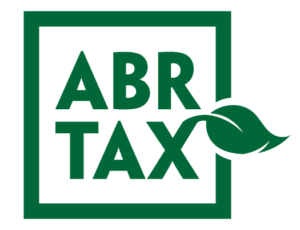Following are the important dates and tax deadlines throughout the calendar year.
January 1
Start of the new tax year.
January 11
For employees who work for tips. If you received $20 or more in tips in December, you must report it to your employer using form 4070. You should report your tips on the 10th of every month throughout the year.
January 15
If you did not pay your income tax through withholding (or didn't pay in enough tax), you must use Form 1040ES. For example, if you are self-employed or a landlord, you need to pay your final installment for the year. You do not have to make this payment if you file your return (Form 1040).
February 1
This deadline is for individuals who need to make estimated tax payments. If you did not pay your last installment of estimated tax by January 15, you can choose to file your income tax return (Form 1040) by February 1. Filing your return and paying any tax owed by this date prevents any penalty for late payments of your last installment.
February 16
Deadline for Individuals: If you claimed exemption from income tax withholding last year on Form W4, Employee's Withholding Allowance Certificate, you must file a new Form W4 by this date to continue your exemption for another year.
Deadline for businesses: To give annual statements to recipients of specific payments. Businesses can use the appropriate version of Form 1099, which can be issued electronically with the consent of the recipient.
February 29
Deadline for businesses to submit forms 1099 and 1096, if filing on paper. These documents relate to business transactions that are not covered by the W-2 form (anything that falls outside of tips and wages). If filing electronically, the deadline is April 1.
Deadline for farmers and fishermen to file income tax return (Form 1040) and pay any taxes due. You have until April 15 to file if you paid your estimated tax by January 15.
March 15
Deadline for corporate tax returns. Corporations who use the calendar year as their tax year are eligible for a 6-month extension but must apply for it by this date.
April 18
This is the last day for submitting and paying individual tax returns. You can request a 6-month extension on filing your return, however, all payments are due by this date. Since refunds expire three years from their original due date, April 18 is the last day to file an original or amended tax return and claim a rebate. It is also the last day to contribute to an Individual Retirement or Health Savings Account (IRA/HSA) and have it considered retroactive. Finally, April 15 is the deadline for the first quarterly estimated tax payment.
May 15
Deadline for non-profit organizations to submit details to the IRS or request an extension. These organizations are required to submit a Form 990 or information return so the IRS can evaluate their operations and ensure they are exempt from federal tax.
June 15
Second quarter estimated payments are due on this date as well as tax returns and payments from U.S. citizens living abroad.
June 30
Foreign asset forms (FBAR) are due to the U.S. Department of the Treasury. (Expats must file an FBAR form if they have had $10,000 or more in any foreign bank accounts).
September 15
Third quarter estimated tax payments are due. If an extension was requested on corporate, trust income or partnership tax returns for the year, this is the final deadline for filing.
October 1
If you are self-employed or a small business owner, this is your last chance to set up a SIMPLE IRA for the year. SIMPLE IRAs (Savings Incentive Match Plan for Employees Individual Retirement Account) are Individual Retirement Accounts for small companies and their employees and are designed to be cheaper and easier to maintain than their more corporate counterparts.
October 17
Final deadline if you requested an extension on your individual tax returns.
December 31
Last day to make any tax moves for the year.
SOURCE: Internal Revenue Service – IRS.com
